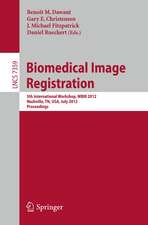Epidemiological Research: An Introduction
Autor O. S. Miettinen, I. Karpen Limba Engleză Paperback – 9 aug 2014
In accord with its title, this book focuses on research to develop the knowledge-base for preventive medicine, which mainly is knowledge about the causal origin –etilogy, etiogenesis – of illness. It first illustrates how wanting this knowledge still is, despite much research; and it then aims to guide the reader to more productive etiogenetic research.
This book places much emphasis on the need to assure relevance by principles-guided objects design for the studies, which now remains conspicuously absent from epidemiologists’ concerns. And as for methods design, this book exposes the fallacies in the still-common ‘cohort’ and ‘case-control’ studies, defines the essentials of all etiogenetic studies, and then addresses the true options for design in this framework of shared essentials.
A good deal of attention is also given to the still commonly-held, very major, twin fallacies that screening for an illness is a preventive intervention, to be studied by randomized trials, and that research on it can imply rational guidelines orrecommendations regarding decisions about the screening.
While Miettinen already is regarded as ‘the father of modern epidemiology,’ he now appears to have become the father also of post-modern epidemiology, where ‘epidemiology’ still means epidemiological research.
| Toate formatele și edițiile | Preț | Express |
|---|---|---|
| Paperback (1) | 363.60 lei 6-8 săpt. | |
| SPRINGER NETHERLANDS – 9 aug 2014 | 363.60 lei 6-8 săpt. | |
| Hardback (1) | 369.29 lei 6-8 săpt. | |
| SPRINGER NETHERLANDS – 25 iul 2012 | 369.29 lei 6-8 săpt. |
Preț: 363.60 lei
Preț vechi: 382.75 lei
-5% Nou
Puncte Express: 545
Preț estimativ în valută:
69.58€ • 72.23$ • 58.02£
69.58€ • 72.23$ • 58.02£
Carte tipărită la comandă
Livrare economică 25 martie-08 aprilie
Preluare comenzi: 021 569.72.76
Specificații
ISBN-13: 9789401784115
ISBN-10: 9401784116
Pagini: 200
Ilustrații: XIV, 186 p.
Dimensiuni: 155 x 235 x 11 mm
Greutate: 0.29 kg
Ediția:2012
Editura: SPRINGER NETHERLANDS
Colecția Springer
Locul publicării:Dordrecht, Netherlands
ISBN-10: 9401784116
Pagini: 200
Ilustrații: XIV, 186 p.
Dimensiuni: 155 x 235 x 11 mm
Greutate: 0.29 kg
Ediția:2012
Editura: SPRINGER NETHERLANDS
Colecția Springer
Locul publicării:Dordrecht, Netherlands
Public țintă
Professional/practitionerCuprins
Foreword. Preface. Acknowledgements.-1. Epidemiology: grappling with the concept.-2. Epidemiological knowledge: examples.-3. Etiology as a pragmatic concern. -4. Etiology as the object of study.- 5. Etiologic studies’ essentials.-6. Etiologic studies’ typology.-7. Etiologic studies’ objects design.-8. Etiologic studies’ methods design.-9. Etiologic studies’ intervention counterparts .-10. Causal studies’ acausal counterparts.-11. Studies on screening for a cancer.-12. Some paradigmatic studies.-13. From studies to knowledge.-14. Fact-finding in epidemiological practice. Index.
Recenzii
From the reviews:
“The purpose is to focus on the practical purpose of etiologic/etiogenic research and to develop an understanding of its objects and methods in order to ‘attain and maintain the conceptual understandings that form the basis for maximally consequential careers in epidemiologic research.’ The authors meet this commendable objective through a sophisticated and thought-provoking treatment of core epidemiological principles of research. Although seemingly intended for teachers, the book would be well received by established academics and advanced graduate students.” (Margaret L. Chorazy, Doody’s Review Service, January, 2013)
“The purpose is to focus on the practical purpose of etiologic/etiogenic research and to develop an understanding of its objects and methods in order to ‘attain and maintain the conceptual understandings that form the basis for maximally consequential careers in epidemiologic research.’ The authors meet this commendable objective through a sophisticated and thought-provoking treatment of core epidemiological principles of research. Although seemingly intended for teachers, the book would be well received by established academics and advanced graduate students.” (Margaret L. Chorazy, Doody’s Review Service, January, 2013)
Textul de pe ultima copertă
Having last year published “Up from Clinical Epidemiology & EBM” and also “Epidemiological Research: Terms and Concepts,” Miettinen now – this time with collaboration from his junior colleague I. Karp – brings out this further introduction into epidemiological research; and he is now working on an introduction into clinical research, for publication next year. It evidently is Miettinen’s felt time to crystallize the basic understandings he has come to as the culmination of a half-century of concentrated effort to advance the theory of epidemiological and ‘meta-epidemiological clinical’ research.
In accord with its title, this book focuses on research to develop the knowledge-base for preventive medicine, which mainly is knowledge about the causal origin –etilogy, etiogenesis – of illness. It first illustrates how wanting this knowledge still is, despite much research; and it then aims to guide the reader to more productive etiogenetic research.
This book places much emphasis on the need to assure relevance by principles-guided objects design for the studies, which now remains conspicuously absent from epidemiologists’ concerns. And as for methods design, this book exposes the fallacies in the still-common ‘cohort’ and ‘case-control’ studies, defines the essentials of all etiogenetic studies, and then addresses the true options for design in this framework of shared essentials.
A good deal of attention is also given to the still commonly-held, very major, twin fallacies that screening for an illness is a preventive intervention, to be studied by randomized trials, and that research on it can imply rational guidelines orrecommendations regarding decisions about the screening.
While Miettinen already is regarded as ‘the father of modern epidemiology,’ he now appears to have become the father also of post-modern epidemiology, where ‘epidemiology’ still means epidemiological research.
Albert Hofman
Erasmus Medical Center, Rotterdam, The Netherlands
In accord with its title, this book focuses on research to develop the knowledge-base for preventive medicine, which mainly is knowledge about the causal origin –etilogy, etiogenesis – of illness. It first illustrates how wanting this knowledge still is, despite much research; and it then aims to guide the reader to more productive etiogenetic research.
This book places much emphasis on the need to assure relevance by principles-guided objects design for the studies, which now remains conspicuously absent from epidemiologists’ concerns. And as for methods design, this book exposes the fallacies in the still-common ‘cohort’ and ‘case-control’ studies, defines the essentials of all etiogenetic studies, and then addresses the true options for design in this framework of shared essentials.
A good deal of attention is also given to the still commonly-held, very major, twin fallacies that screening for an illness is a preventive intervention, to be studied by randomized trials, and that research on it can imply rational guidelines orrecommendations regarding decisions about the screening.
While Miettinen already is regarded as ‘the father of modern epidemiology,’ he now appears to have become the father also of post-modern epidemiology, where ‘epidemiology’ still means epidemiological research.
Albert Hofman
Erasmus Medical Center, Rotterdam, The Netherlands
Caracteristici
Is wholly unlike any other in its class Highly innovative, ambitious Has 'the father of modern epidemiology' as its first author














